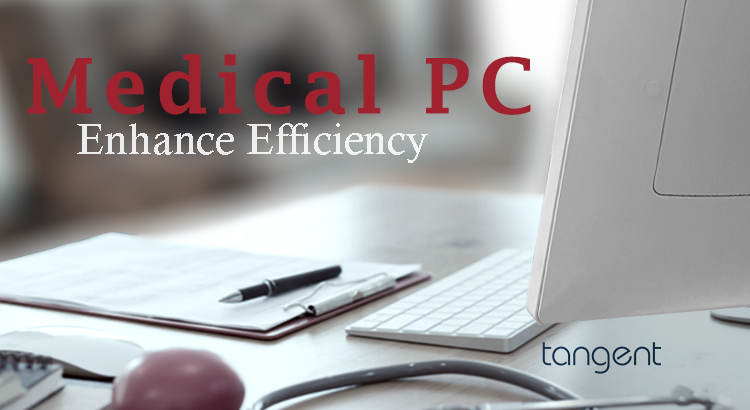In the rapidly evolving landscape of healthcare, technological advancements are revolutionizing patient care, improving outcomes, and enhancing operational efficiency. At the heart of this transformation are medical PCs, purpose-built computing devices designed to meet the unique demands and rigorous standards of the healthcare industry. In this comprehensive guide, we will explore the essential role of medical PCs in powering healthcare innovation and efficiency, enabling healthcare providers to deliver superior patient care while streamlining their workflows.
Medical PCs Enhance Patient Care:
- Reliable and Secure Data Management: Medical PCs provide a secure and centralized platform for storing, accessing, and managing electronic health records (EHRs). This enables healthcare professionals to retrieve patient information swiftly, make informed decisions, and improve the accuracy and speed of diagnoses and treatments.
- Seamless Connectivity and Collaboration: Medical PCs facilitate seamless connectivity and collaboration among healthcare providers, allowing instant access to patient data, test results, and treatment plans across different departments and locations. This enhances care coordination, reduces errors, and enables more effective and timely decision-making.
- Point-of-Care Accessibility: Medical PCs are designed for mobility, enabling healthcare professionals to access patient information and record data directly at the point of care. Whether in hospital rooms, clinics, or operating theaters, these devices empower healthcare providers to deliver personalized, efficient, and patient-centric care.
Medical PCs Improve Operational Efficiency:
- Streamlined Workflows: Medical PCs integrate with various healthcare systems, such as electronic medical record (EMR) systems and laboratory information systems, streamlining workflows and reducing manual paperwork. They automate administrative tasks, improve data accuracy, and free up healthcare professionals’ time to focus on patient care.
- Medical Device Integration: Medical PCs can seamlessly interface with a wide range of medical devices, such as diagnostic equipment, patient monitors, and imaging systems. This integration enables real-time data capture, analysis, and visualization, facilitating faster diagnoses, treatment adjustments, and monitoring.
- Infection Control and Durability: Medical PCs are built to withstand the demanding healthcare environment. They feature antimicrobial coatings, sealed designs, and easy-to-clean surfaces to minimize the risk of cross-contamination. Their durability ensures long-term reliability, reducing downtime and maintenance costs.
- Medication Administration and Safety: Medical PCs support barcode scanning and medication verification processes, ensuring accurate medication administration and reducing medication errors. Integration with medication management systems and decision support tools further enhances patient safety and medication management efficiency.
Meeting Regulatory and Compliance Requirements with Medical PCs:
- HIPAA and Data Security: Medical PCs adhere to strict data security standards, including compliance with the Health Insurance Portability and Accountability Act (HIPAA). They employ robust encryption, authentication, and access control measures to safeguard patient data, ensuring privacy and confidentiality.
- FDA and Medical Device Regulations: Medical PCs comply with the regulations set forth by the U.S. Food and Drug Administration (FDA) for medical devices. They undergo rigorous testing and validation processes to meet safety, performance, and interoperability requirements.
- Quality and Certification: Medical PCs often hold certifications, such as ISO 13485 (for medical device quality management systems) and IEC 60601 (for medical electrical equipment safety). These certifications attest to the devices’ adherence to stringent quality standards, ensuring their reliability and suitability for use in healthcare settings.
As healthcare continues to advance and evolve, the role of medical PCs in powering innovation and efficiency becomes increasingly vital. These purpose-built computing devices enhance patient care, improve operational efficiency, and ensure compliance with regulatory standards. By leveraging the capabilities of medical PCs, healthcare providers can unlock the potential of technology to deliver superior care, streamline workflows, and drive healthcare innovation in an increasingly interconnected world.
Discover our medical PCs at: https://www.tangent.com/medical-computers/
